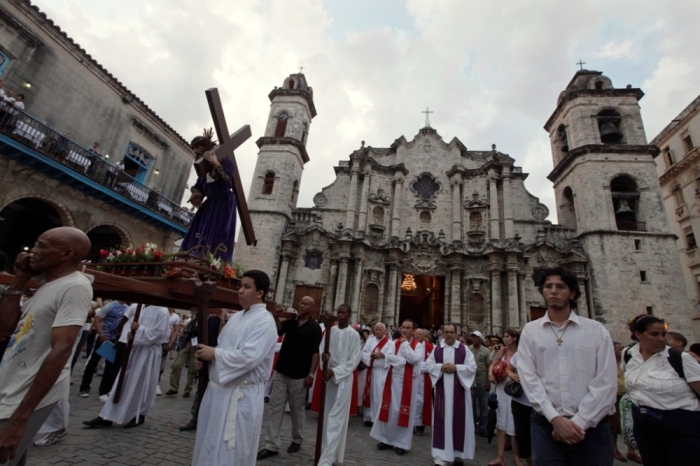Cuba to Build Its First Catholic Church Since 1959 When Fidel Castro Jailed, Exiled Priests

The construction of Cuba's first Roman Catholic Church since 1959 is set to begin in the village of Sandino in the province of Pinar del Rio. Cuba has recently experienced warming ties both with the U.S. and the Vatican.
"There is money to begin, building materials to begin, and we have the permissions to start, so everything is ready," said Jorge Enrique Serpa Pérez, the bishop of Pinar del Río, according to Breitbart News.
It is a significant development in the largely Catholic country, which had exiled and jailed a number of priests belonging to the Vatican following the 1959 Cuban Revolution and Fidel Castro's rise in power.
When news that the construction of the church had earned approval from the government in August 2014, some questioned the motives behind the move.
Pedro L. Rodriguez, executive director for the Miami, Florida-based Foundation for Human Rights in Cuba, told The Christian Post at the time that the approval was "a public relations scam directed to project Raul Castro as a true reformer."
"The Cuban government, it's mainly interested in attracting investors and [giving] the impression that the Cuban government, it's evolving into a less totalitarian experiment," said Rodriguez.
"Unfortunately, the Cuban Catholic Church has been very passive in regards to confronting, peacefully of course, the government."
Rodriguez also highlighted Cuba's record of arresting thousands of dissidents in the past few years.
U.S. President Barack Obama announced in December that the U.S. will seek to normalize diplomatic relations with Cuba, and praised Pope Francis for playing a notable part in efforts for reconcilliation. Many obsrvers pointed out, however, that the Latin American country's human rights record remains troublesome.
"First, I am concerned that normalizing diplomatic ties without addressing [Fidel] Castro's horrendous human rights record serves as a defacto endorsement for one of the most oppressive regimes in recent history," said the Rev. Samuel Rodriguez, president of the National Hispanic Christian Leadership Conference.
"As a result of Castro's totalitarian rule, millions live in poverty, thousands lie in prisons, and many have lost their lives. In addition, the God-given rights of Cuban citizens are held hostage to governmental persecution."
Rodriguez shared his hopes, however, that the warming of relations "will serve as a catalytic step in unleashing the followers of Jesus to be the Church both inside and outside of the island nation, addressing the spiritual and physical needs of the Cuban people."
Some priests in Cuba have attested to the government's recent attempts to rebuild the relationship with the Vatican, however, including Father Cyril P. Castro, the pastor of Las Martinas and Sandino.
"We have wanted to build this church for many years, but it wasn't possible," Father Castro said. "Finally we can say that it is underway."
The priest revealed that he will work full time at the Catholic church in Sandino when it's ready.
"People can say that Catholicism was lost in Cuba, but it's not true," he added. "The family of faith has endured. In fact, we are showing the fruit of those roots."
Fr. Castro estimated that it will take two years to build the church, and that it will be able to seat 200 people.




























